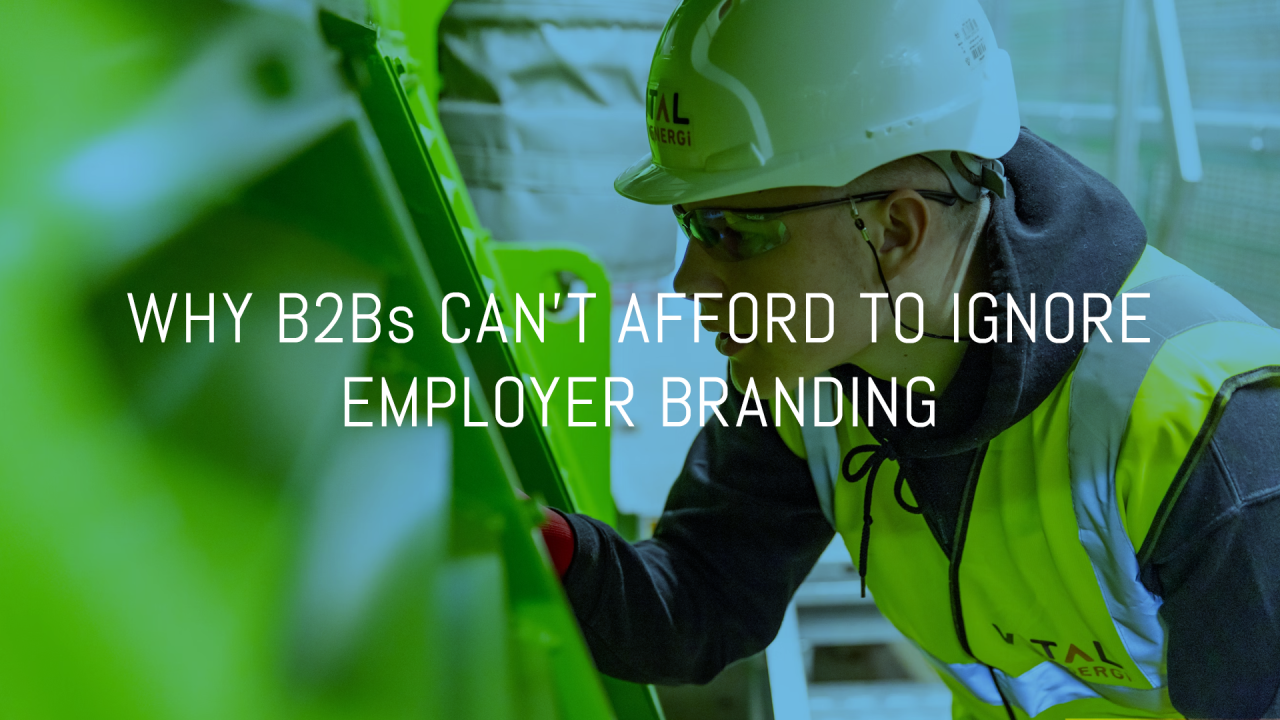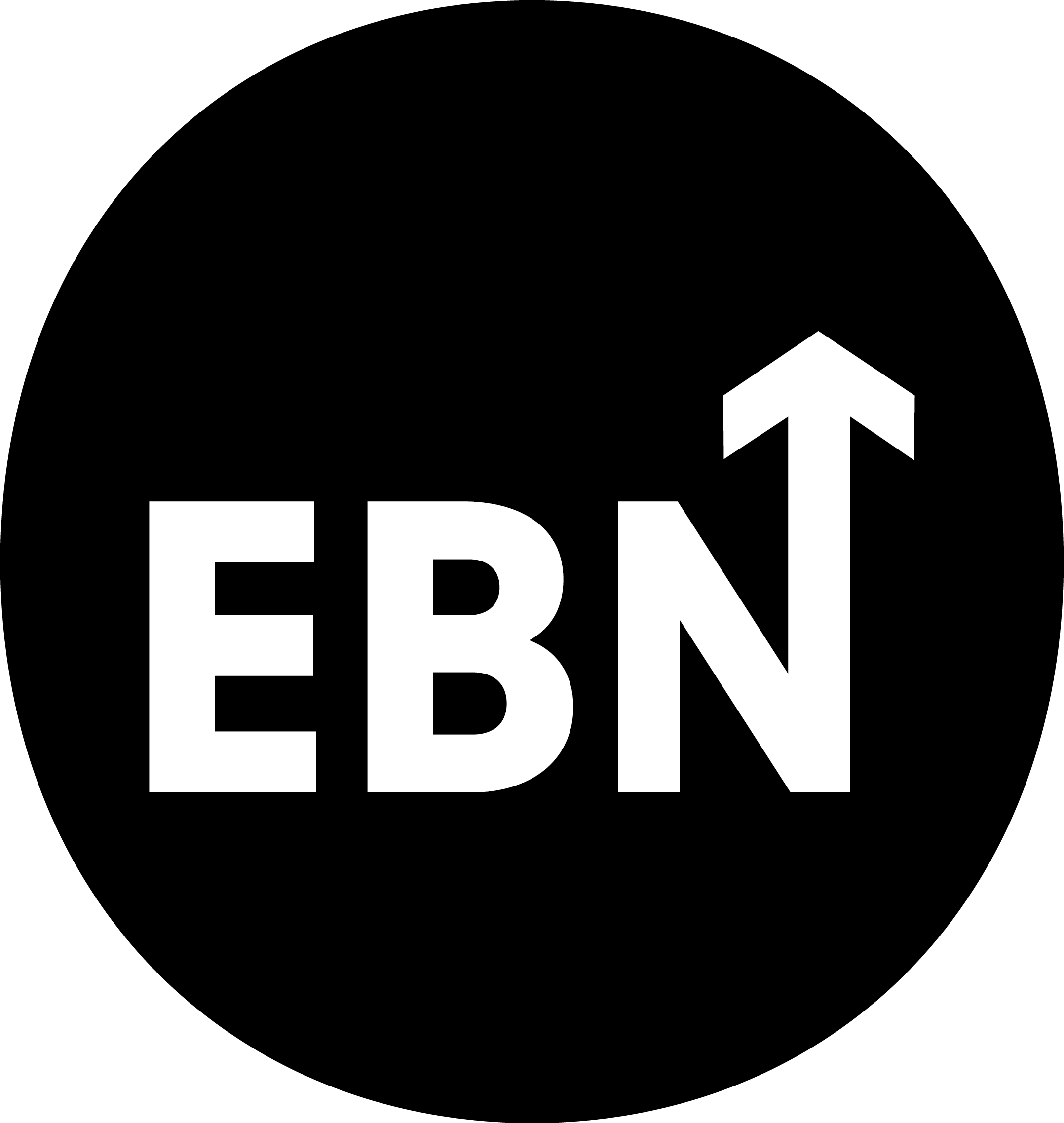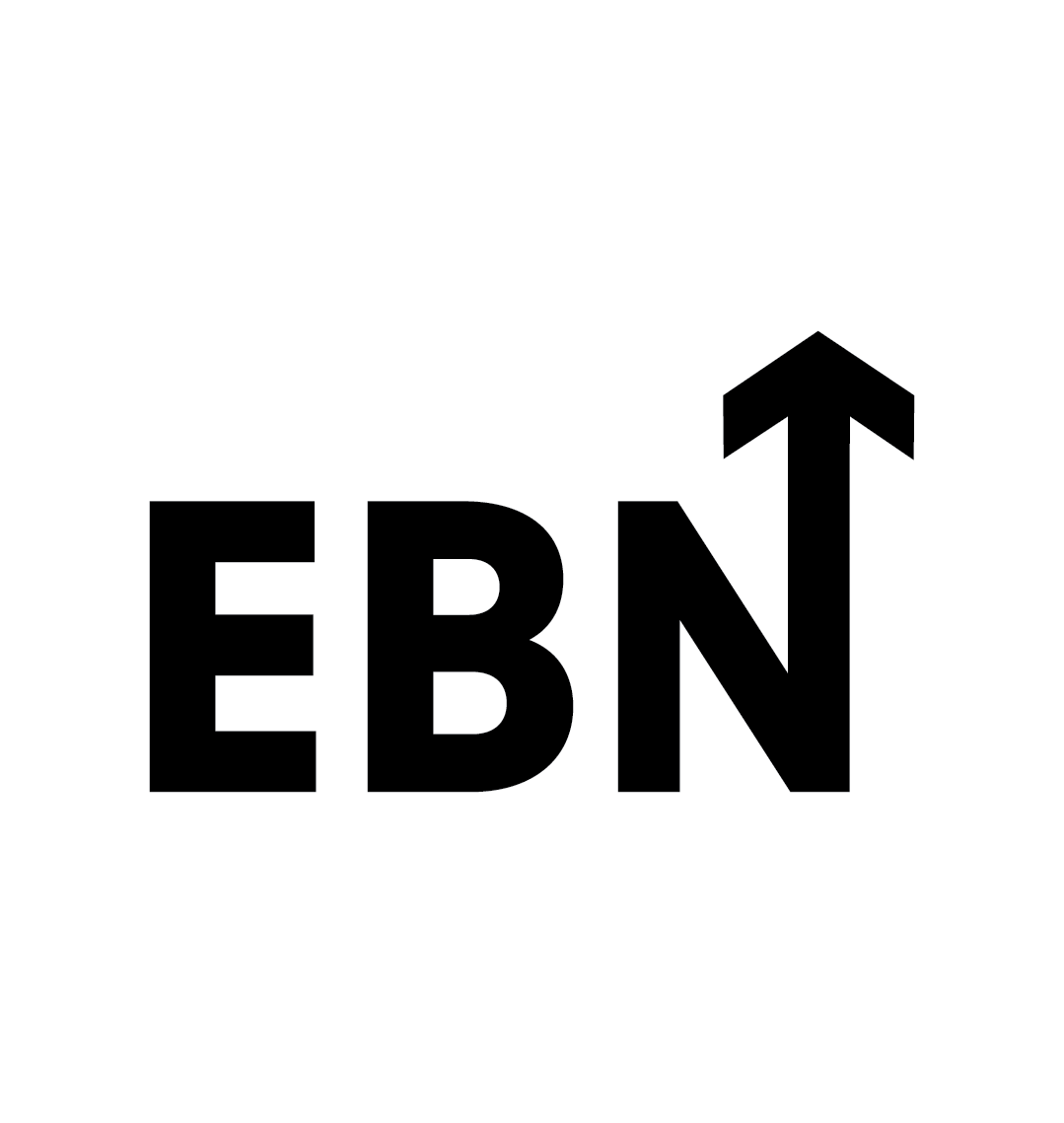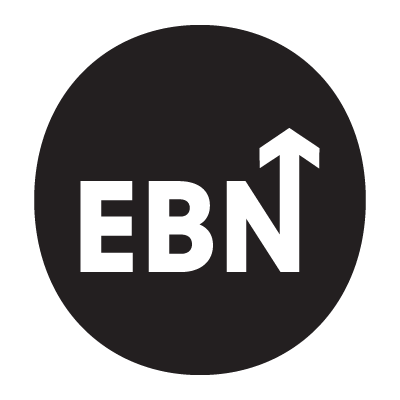Employer brand for B2B? Yep.
Most of my global employer brand clients have been consumer-facing. Not surprising as they tend to prioritize strategic image management and visibility, and it makes sense that they would apply that instinct to candidates.
But in B2B it’s often a different story. And that’s the problem.
If you're in talent acquisition for a B2B (think industrial supply, logistics, manufacturing, OEM) you may be overlooking one of your biggest competitive levers: employer brand.
In fact, the need is often greater, and the returns sweeter.
“But we don’t need EB .. do we?”
Let’s address a common perception: B2Bs are typically more performance-focused, sales-driven, and ROI-oriented. It's what they're good at! And brand often takes a back seat to metrics. While understandable, it means many B2Bs barely invest in employer branding, and the effort often stops at job board posts. Here’s what that approach misses.
What B2Bs risk with an “employer brand void”.
1. Awareness Your customers know you. But candidates? Probably not. You're competing for the same talent as Nike, Google, and Amazon but without the name recognition. Especially in rural regions, I’ve seen cases where jobseekers didn’t even know the company existed nearby.
2. Esteem Low awareness means lower perceived prestige. Candidates in roles like marketing or UX often favor brands with cultural cachet or a following. That hurts your ability to attract top talent in competitive fields.
3. Trust In an era of job scams and mass layoffs, unfamiliar companies are often skipped entirely. A weak employer presence can be a red flag, even if your jobs are legit and your culture is strong.
4. Clarity Even brands with some name recognition, such as Workday or Accenture, may leave candidates confused about what they actually do. That’s a missed opportunity. Candidates need a clear, compelling picture of your mission, roles, and culture before they engage.
5. Location This one’s big. Many B2Bs operate in rural or remote areas where relocation is tough. Lack of amenities, school systems, or housing can be deterrents. Your brand needs to do the heavy lifting of selling the why—not just of the job, but of the place.
Momentum isn’t progress. Especially when you always end up back where you started. Fathom helps you escape the loop. With insight, not intuition. Fathom helps companies build employer brands worth believing in and sticking with.
What B2Bs might not realize they have going for them.
While these challenges are real, there are also strengths many B2Bs are sitting on. Here's what you might be able to leverage:
Location (yes, again) For employers outside cities, lower cost of living, quieter lifestyle, proximity to nature .. all of these appeal to professionals burned out from urban chaos. Remote workers included.
Salary Smaller employers often need to offer more competitive compensation to attract top-tier talent (and can do so thanks to lower overhead or steady B2B revenues).
Opportunity Flatter hierarchies and leaner teams often mean faster career progression and more direct access to leadership.
Training Especially in skilled trades and technical roles, B2Bs often invest heavily in internal training that builds talent from the ground up.
Culture When your brand isn’t the “star,” your people often are. Some of the strongest cultures I’ve seen come from B2Bs where employees are truly the face and heartbeat of the business.
Leadership Many B2Bs are run by founder-led or closely held leadership teams, offering a clarity of vision and values that’s missing from larger corporations.
Creative freedom Unlike rigid consumer brands, B2Bs can afford to be nimble and audience-led in their messaging which result in campaigns that resonate with candidates, not just align with corporate brand playbooks.
It’s interesting to me that, historically, B2B employers have better people retention, endure less frequent layoffs, more structured career growth, deeper skills development, and enjoy more stable revenue streams than B2Cs. (Recent grad or jobseekers: don't overlook these companies. When it comes to a career, steady might be better than sexy!)
Ask yourself:
- What is our untold talent story?
- Are there misunderstandings out there about us?
- Can I quickly put my finger on a key differentiating attribute?
- Do we have an "employer brand void"?
My take ..
If you’re in HR or talent acquisition for a B2B, now is the time to start thinking differently. EB isn’t just a “nice to have” .. it could be the key to solving real hiring challenges.
Also, do not let the lack of a powerful corporate brand stop you from developing your employer brand story and key messages.
There’s huge opportunity here, but it requires strategic flex, performance focus, and creativity that drives real differentiation.
Takeaways
Do B2B firms really need employer branding?
Yes, without it you’re invisible to talent that happily recognises Nike or Google.
What’s the cost of ignoring it?
An “employer-brand void” erodes awareness, esteem, trust, clarity and even willingness to relocate.
Which obstacles hit B2B the hardest?
Rural locations, low consumer name-value and confusion about what the company actually does.
Any built-in advantages B2Bs overlook?
Competitive pay, faster progression, founder-led vision and cultures where people, not products, are the heroes.
How does location flip from weakness to win?
Sell the lower cost-of-living and proximity to nature to urban-burnout talent and remote workers.
First move for a talent team?
Diagnose your “brand void,” surface an untold talent story, and craft clear EVP messages, no glossy consumer halo required.
One-line takeaway?
Employer branding isn’t lipstick for B2C; it’s a competitive lever B2B can’t afford to skip, use it or lose the talent race.

Republished with a light EBN polish and the full blessing of the author, Mark Conachan. Catch his original take on LinkedIn here.







